Pregnancy is a time of transformation as your body prepares to grow and nurture a new life. It is quite natural, at this time, for expectant mothers to take extra care of their health and that of their baby and give careful thought to every choice they make.
Manuka honey, although a natural remedy with many health benefits, is often one of those substances that pregnant people hesitate to consume and wonder if it is safe for pregnancy.
Is it safe to eat honey during pregnancy?
Health experts advise against giving honey to infants under the age of one because honey contains bacteria that causes infant botulism. But studies show that honey is safe during pregnancy, both for you and the baby. That’s because adult stomachs can handle bacterial spores called Clostridium botulinum that cause botulism and the immune system protects the body against the bacteria.
Even if the bacteria manage to go past the stomach, research shows that it is unlikely to cross the placenta and reach your baby because of the higher molecular content of the Botulinum toxin. Even in the case of some women who had botulism poisoning during pregnancy, there appeared to be no risk to the unborn baby.
While the National Health Service (NHS) in the UK advises that honey is safe during pregnancy, the FDA in the US and the Australian Government do not explicitly state that Manuka honey is safe to consume during pregnancy. However, they do not include it in the list of foods to avoid either.
Who should avoid honey during pregnancy?
Every pregnancy is different, and it’s best to consult your healthcare professional before consuming any honey during your pregnancy. Below are some conditions when honey should be avoided:
- Because honey is a natural sweetener and contains glucose and fructose, it should be avoided by those with Type1, Type 2, or gestational diabetes.
- People with gastrointestinal issues such as Crohn’s disease and inflammatory bowel disease should avoid honey, as they are more susceptible to botulism bacterial spores.
- You should also avoid honey if you are allergic to bees or honey.
Benefits of Manuka honey during pregnancy
-
Strengthens the immune system
Manuka honey stands out from other types of honey because of its strong antibacterial and anti-inflammatory properties, which makes it effective against a wide range of pathogens and infections. The honey contains a compound called Methylglyoxal (MGO) which is responsible for these potent properties. MGO supports a strong immune system, keeping away coughs, colds, allergies, and other ailments. It may also keep thrush in check, which is quite common during pregnancy.
-
Relief from digestive issues
High concentrations of MGO, which correlates to high Unique Manuka Factor (UMF) of Manuka honey, may also provide relief from digestive issues like heartburn, which is experienced by many pregnant women. Manuka honey is also effective for gastric ulcers and bacterial infections of the digestive tract, and can shorten the duration of diarrhea symptoms.
-
Reduces stress and improves sleep
Pregnancy can be stressful for some mothers-to-be, as they experience many discomforts from aches and pains to restless nights. Manuka honey contains antioxidants that can help reduce stress and thus improve sleep.
-
Reduces hair loss and promotes hair growth
Pregnancy stress can sometimes lead to hair loss, which can be quite worrying for expectant women. Applying high-quality Manuka honey, diluted in warm water on the scalp, can help keep the scalp healthy and clean and alleviate conditions such as dandruff and dermatitis. The many vitamins, minerals, amino acids, and antioxidants in Manuka also help promote hair growth, strengthen hair, and reduce breakage, while the humectant and moisturising properties keep hair conditioned and healthy.
-
Reduces stretch marks and soothes skin conditions
Manuka honey is also beneficial for stretch marks as it stimulates and regenerates collagen and elastin production—both proteins that help the skin to return into shape after stretching and contracting. It’s also common for pregnant women to have dry skin as hormone changes cause the skin to lose moisture and elasticity, resulting in flaky skin, itchiness, and irritation. The high sugar content in Manuka draws moisture and keeps the skin hydrated. Manuka honey also soothes inflammation and is effective in treating itchy and irritable skin.
-
Natural source of energy
Manuka honey is a rich source of nutrients, prebiotics, antioxidants, and glucose, providing natural energy and nutrients to support you during pregnancy.
Best Manuka honey to use during pregnancy
It’s best to consume pasteurised honey instead of raw honey, as there may be a small chance of bacterial contamination with raw honey. Although there are no studies that suggest pasteurised honey is safer than raw honey.
Look for the highest grade of Manuka honey—MGO 263 and above. The higher the concentration in Manuka honey, the more antibacterial and antioxidant properties it contains.
Try Nature’s Gold medical strength Manuka honey, including our skin creams and Manuka medicated liquid for a good night’s sleep.



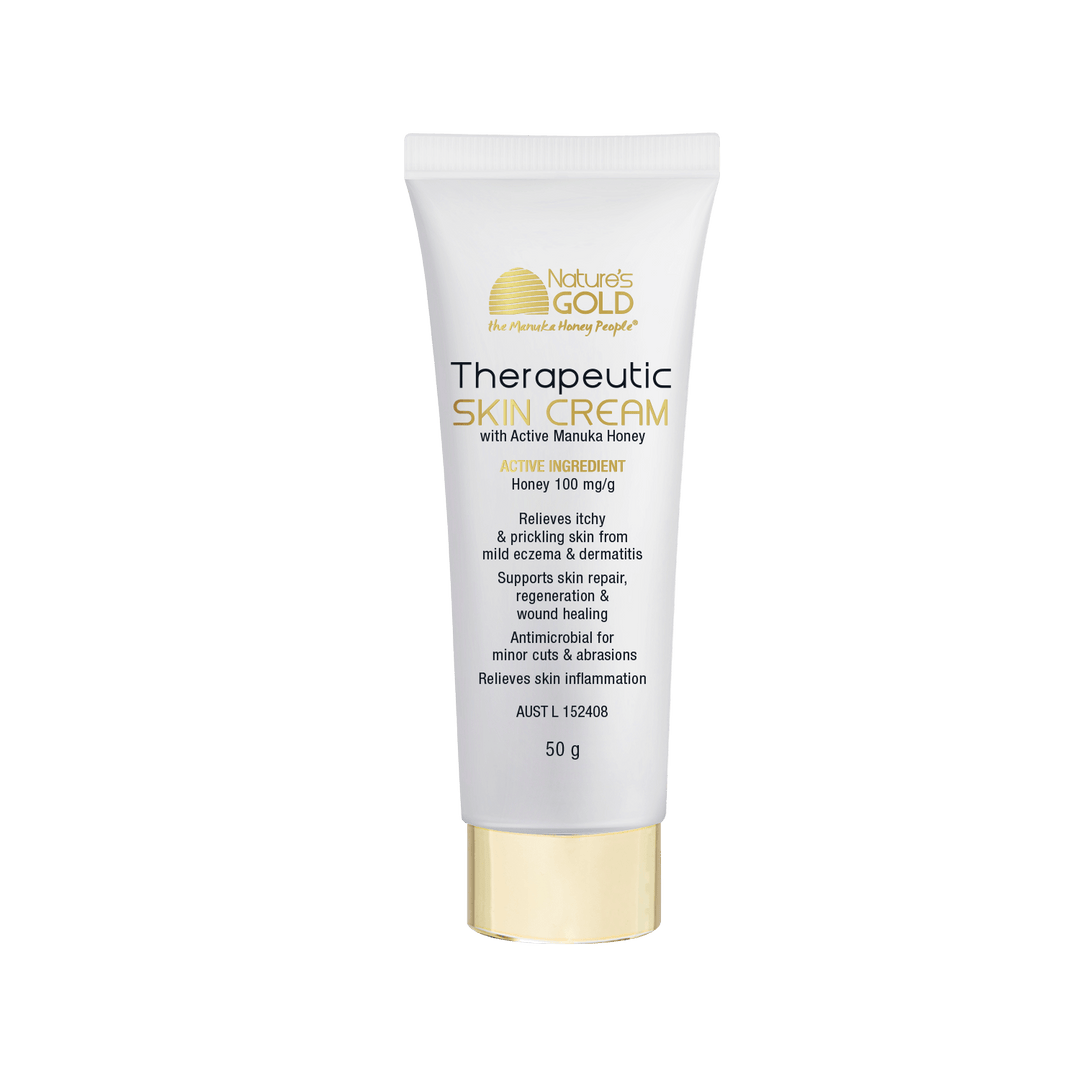
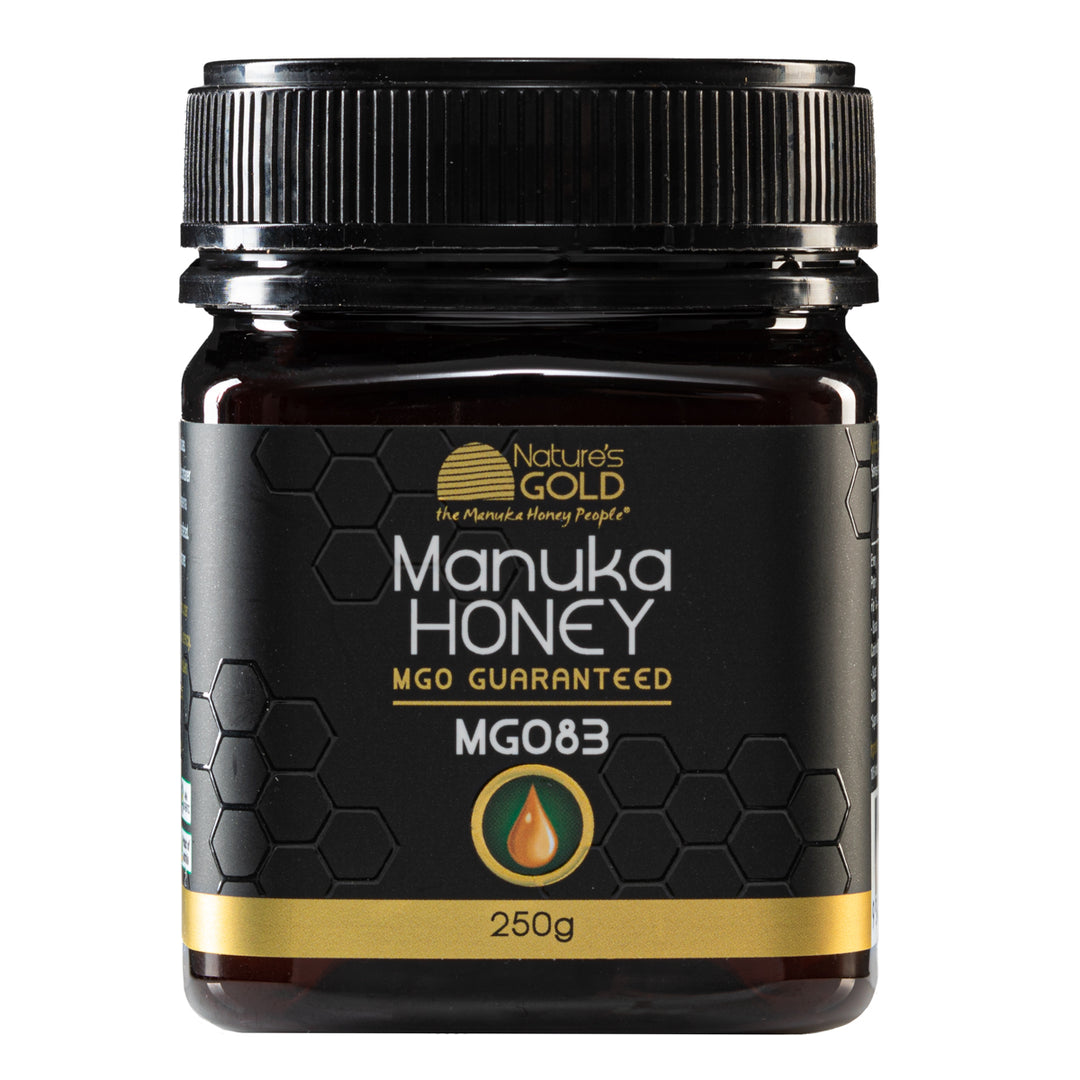
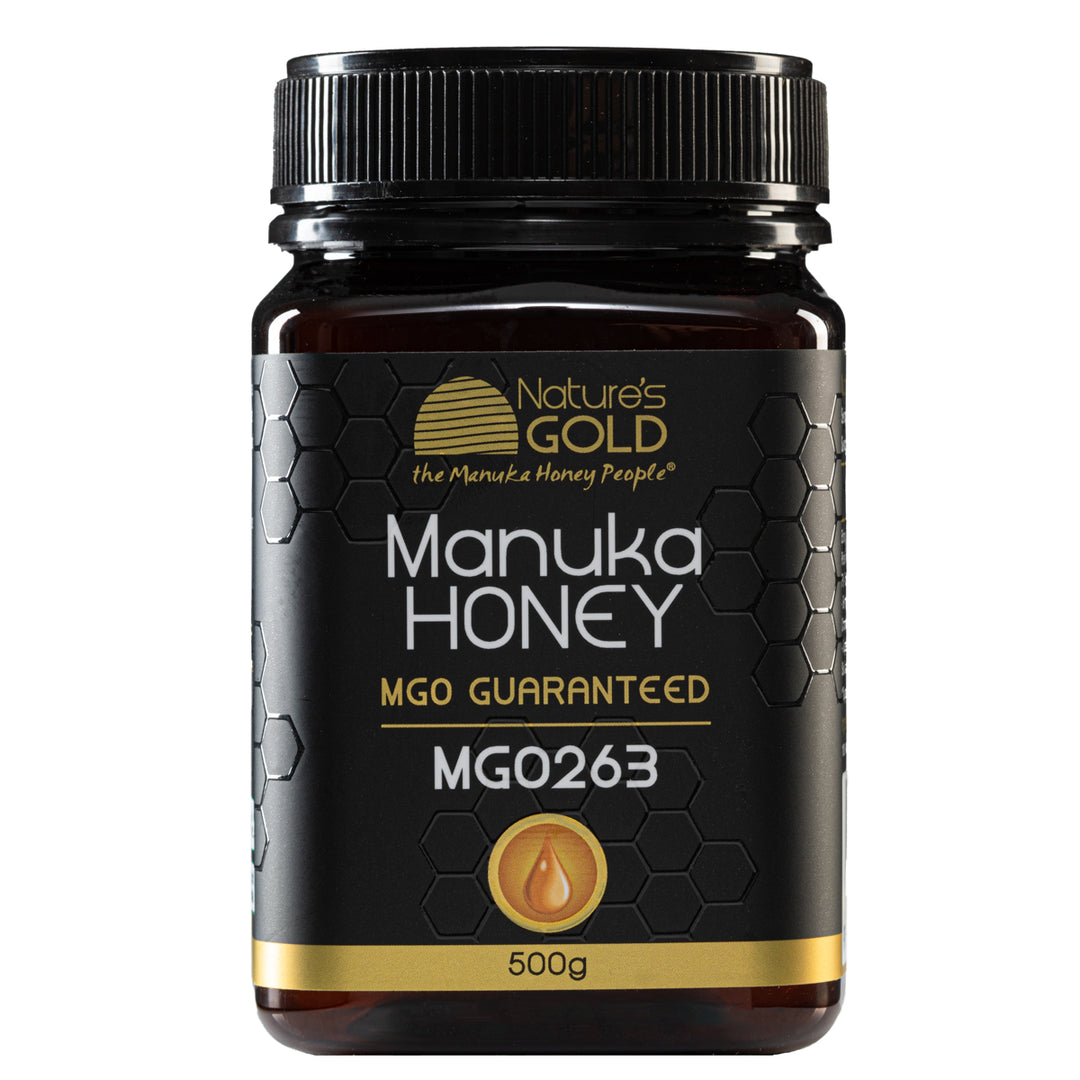
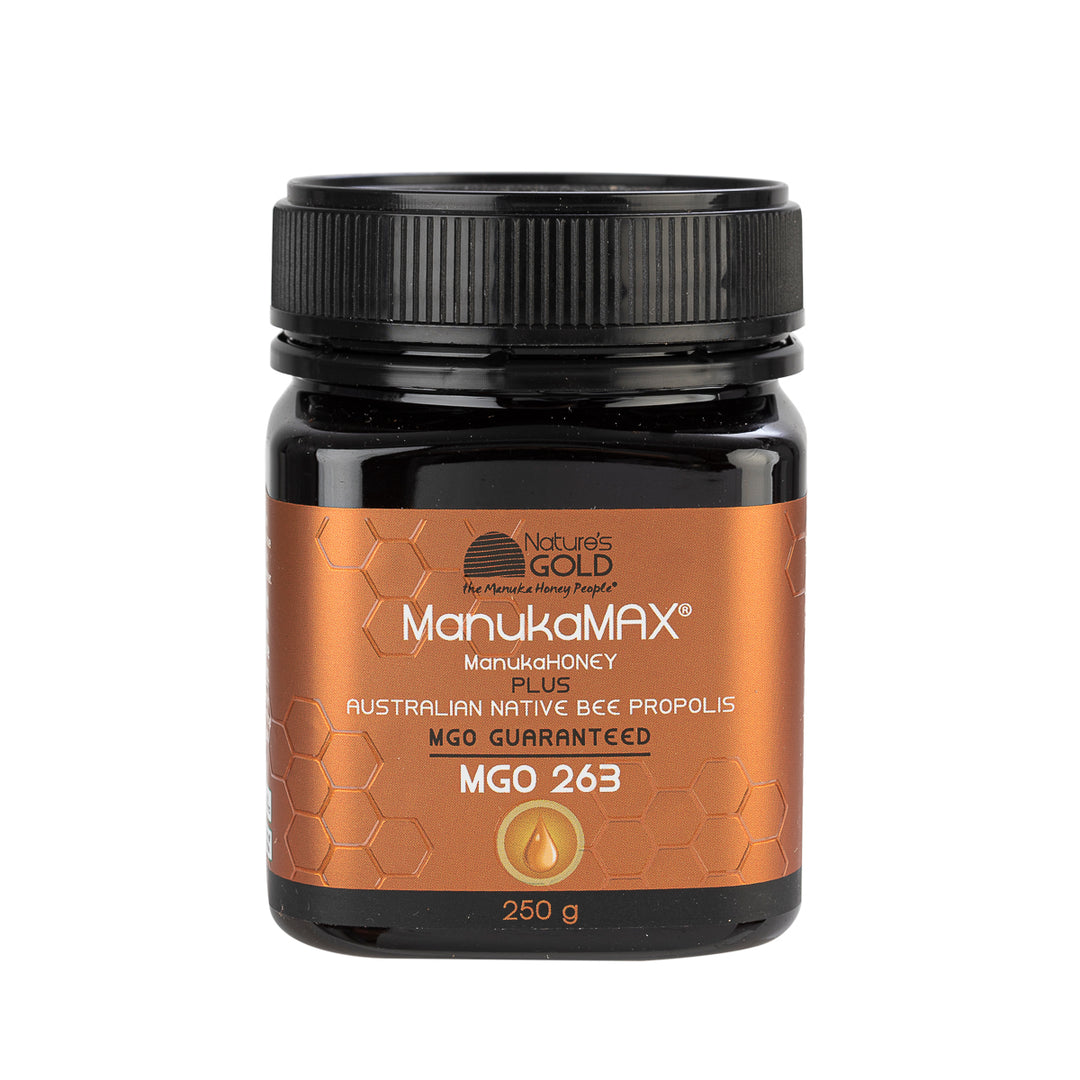
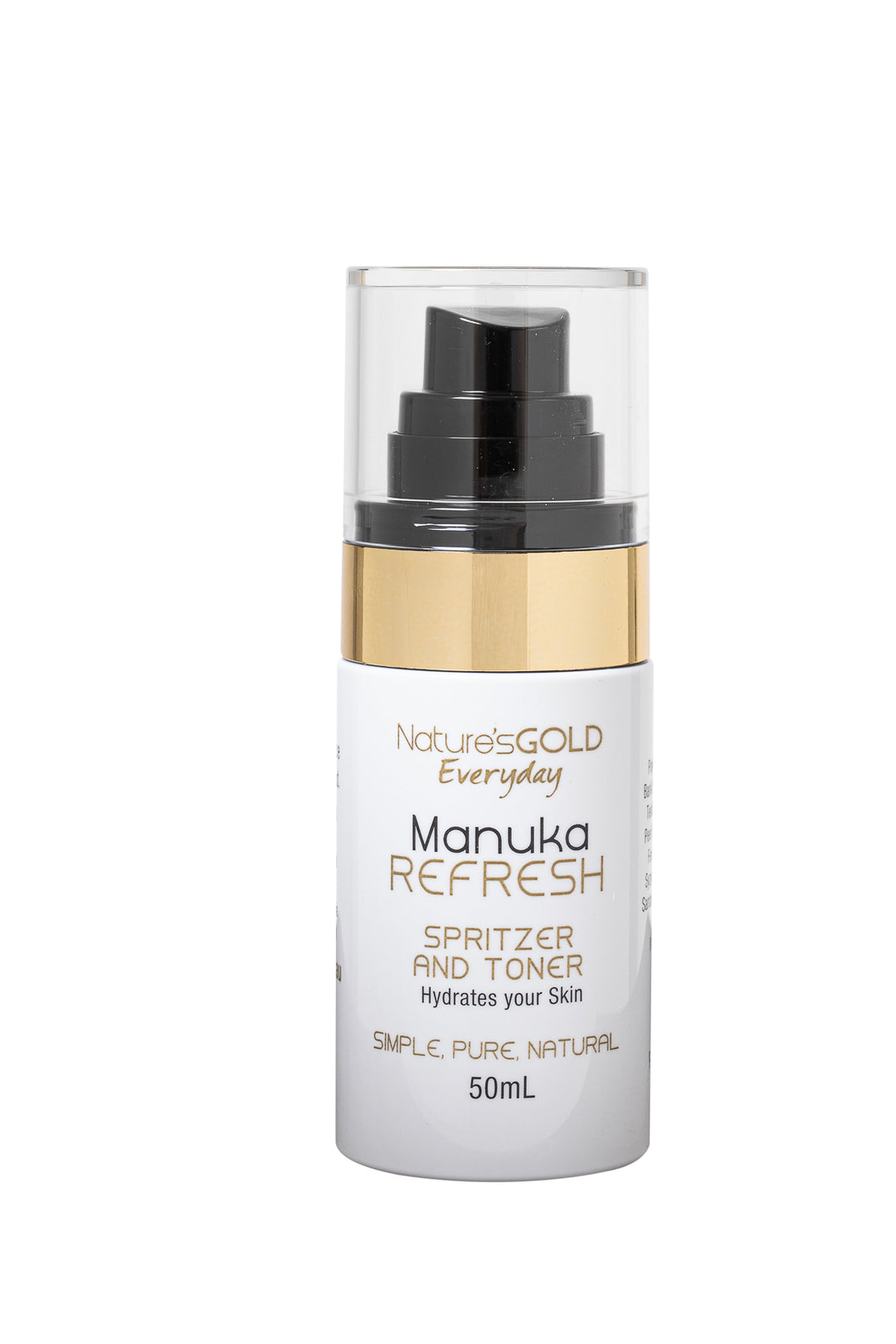



コメントを残す